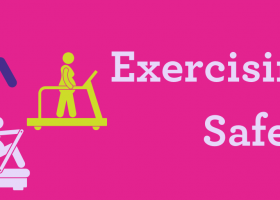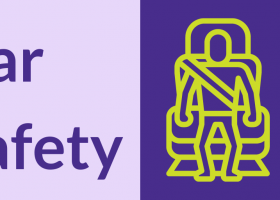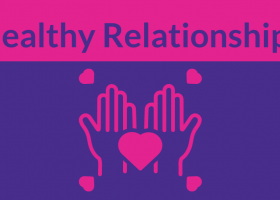Safe Sex and Birth Control

What is Safe Sex?
You’re in the moment and things are getting hot, but that’s not the time to throw caution to the wind! Having safe sex means protecting yourself and your partner from an unplanned pregnancy, HIV/AIDS, or sexually transmitted infections (STIs, also known as STDs or sexually transmitted diseases). Stay safe by talking to your partner before sex about your options for protection so you both know the plan when things start to heat up. Whether you are planning on having kids now or later, it’s important to talk about your plan with your partner.
You are in control of your body. It’s not always easy to talk about sex, but it’s up to you to speak up for yourself.
- Talking to your partner before sex gives you time to talk about any medical issues or concerns you both may have. It also means that you both get a chance to understand each other.
- If you aren’t able to talk about these topics, you may want to rethink if you are ready to have a sexual relationship with this person.
- Tell your partner that you won’t have any kind of sex without using protection. It’s the best way to protect you from pregnancy or from an STI.
- Being safe doesn’t mean you don’t trust your partner, it means that you respect one another.
No More Excuses
If your partner has an excuse for why he doesn’t want to have safe sex, here are some possible responses:
“I don’t have any diseases. Don’t you trust me?”
- “It’s not that I don’t trust you. Some people have STIs and don’t even know it because they have no symptoms. Using a condom will protect both of us.”
“Sex doesn’t feel as good with a condom.”
- “I can’t enjoy sex unless we’re protected.”
- “Being pregnant for 9 months when you don’t want to be, or getting an infection doesn’t feel good either.”
- “Let’s try using another brand or style.”
“Stopping to put on a condom ruins the mood.”
- “I can’t enjoy sex if I know I’m not being safe. That ruins the mood for me.”
- “It doesn’t have to ruin the mood. I can help you put it on.”
“Let’s just do it this one time without a condom.”
- “It only takes one time to get pregnant or get an STI.”
“I don’t have a condom with me.”
- “That’s okay, I do.”
- “We can go to the store and get some. Maybe pick up some other fun items too.”
“I can’t feel anything when I’m wearing a condom.”
- “Many condoms have extra features to actually make sex feel better.”
“You said you are on the pill. We don’t need a condom.”
- “The pill won’t protect us from STIs that we may not even know we have. And now we have double protection.”
“We’ve had sex without condoms before.”
- “That doesn’t mean it’s not a good idea from now on.”
- “I know that we could enjoy each other more if I didn’t have to worry.”
Birth Control
Birth control can’t help unless you use it. Using birth control will help you stick to your reproductive plan. Certain birth control options can also help protect you from sexually transmitted infections (STIs, also known as STDs or sexually transmitted diseases).
There are lots of things to consider when you choose a method. Some methods are more effective than others. Some protect you against an unplanned pregnancy, but not from an STI.
The best place to start is to learn about your options. Talk with your doctor to find the method that fits your lifestyle.
Here are a few examples:
1. Condoms for males and females.
Condoms are used every time you have sex to reduce your risk of getting an STI or becoming pregnant. There are hundreds of shapes and sizes to choose from, some with lube and some without.
2. Birth control pills.
The pill, also called oral contraceptives, is a pill that you swallow. To be the most effective, it is taken once a day at the same time every day.
3. IUD (intrauterine device).
An IUD is a little, t-shaped piece of plastic that gets put in your uterus to stop sperm from fertilizing an egg. They work for between 5-12 years and can be removed by your doctor when you want to become pregnant.
4. Birth control implant.
The implant is a small rod, the size of a matchstick. It is inserted under the skin of your arm. It releases a hormone into your body. It reduces your risk of unplanned pregnancy for up to 3 years.
5. Diaphragm.
A diaphragm is a removable silicone dome used with spermicide or jelly each time you have sex. It covers your cervix to block sperm.
6. Sterilization for females (tubal ligation/tubes tied).
This is a medical procedure to permanently tie your tubes to block sperm and eggs from fertilization.
7. Abstinence.
The only 100% effective way to protect you from an unwanted pregnancy or STI is not to have sex.
Want to learn more about the pros and cons of each type of birth control and where to get them? Visit Bedsider.
To help you figure out what kind of birth control is best for you, take Planned Parenthood’s quiz.
Other Websites and Resources
Bedsider: Fact or Fiction about sex videos
Options for Sexual Health: offers current sexual and reproductive health care, information, and education from a feminist, pro-choice, sex positive perspective
STD Triage app: anonymously send images of what may be an STI to a licensed dermatologist and receive a response within 24 hours
Before We Do: Get regular HIV in-home testing right to your doorstep
Local Resources
- Planned Parenthood Detroit Health Center in Midtown offers pregnancy and STI testing as well as options for birth control
- Summit Medical Center provides screenings and testing for pregnancy and STI’s as well as reproductive care services
- Community Health and Social Services (CHASS) Center has locations in Midtown and Southwest which provide bilingual healthcare services




